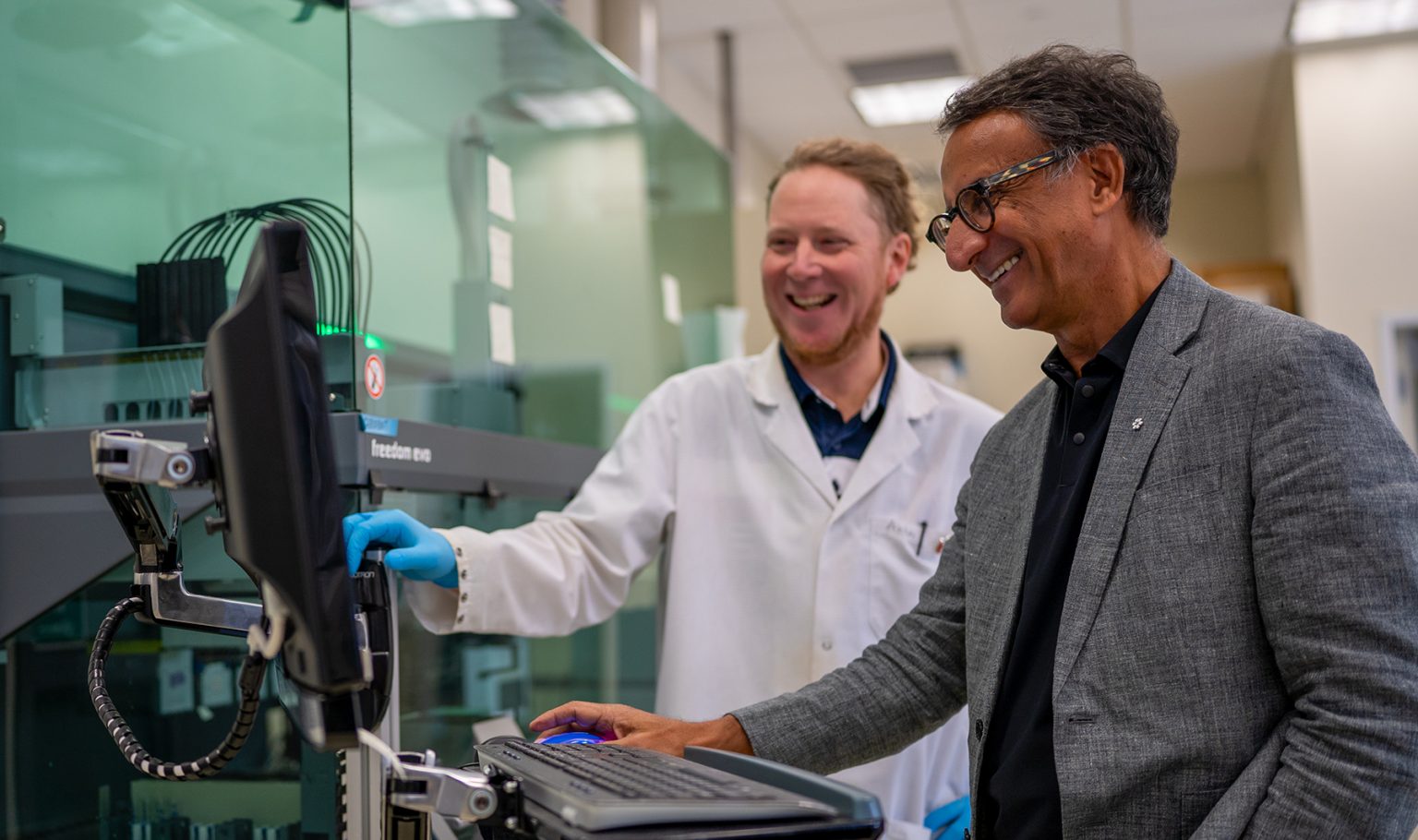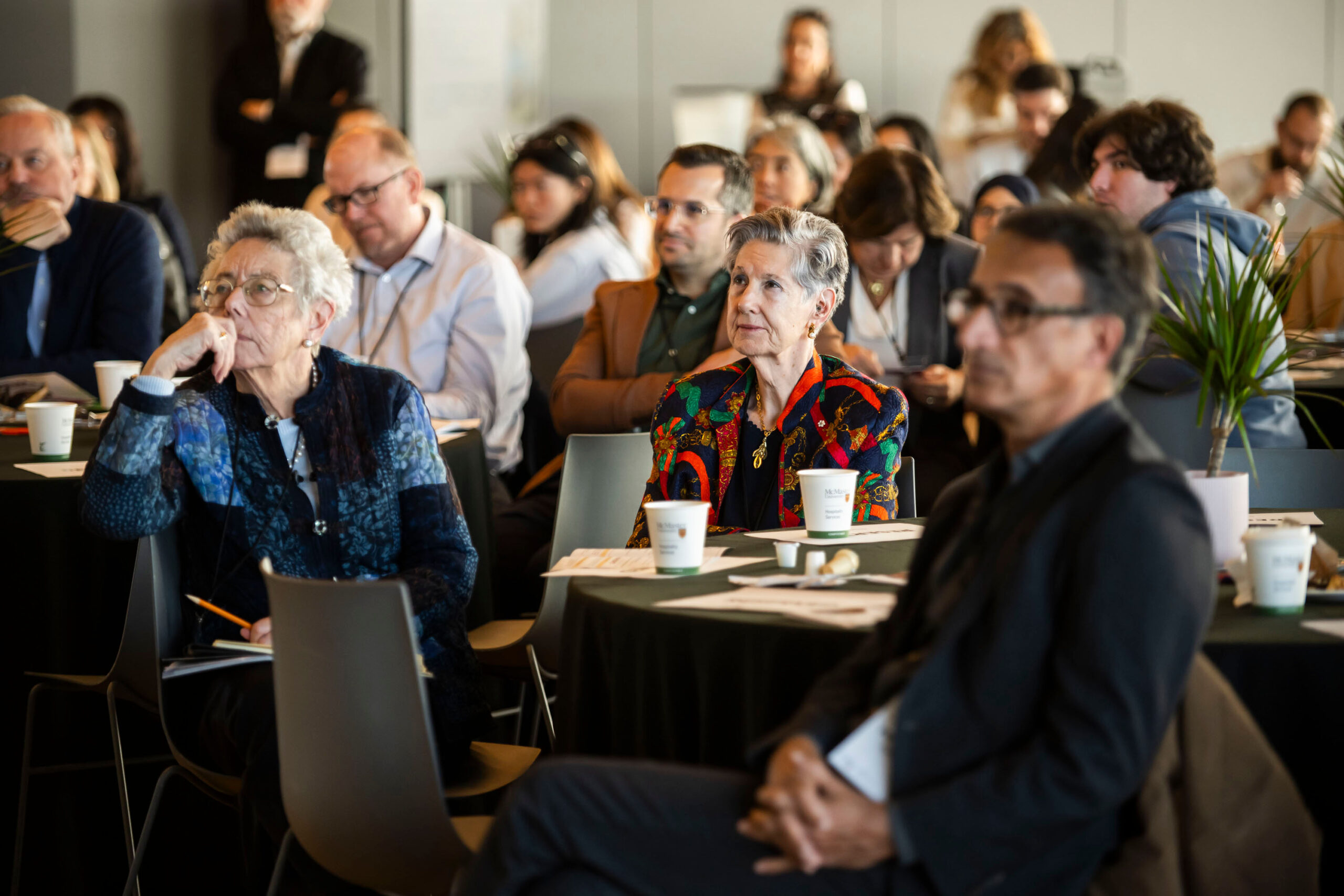
Published: ​​July 13, 2020
The Labarge Centre for Mobility in Aging (LCMA) and the McMaster Institute for Research on Aging (MIRA) are pleased to announce recipients of its Labarge COVID-19 grants, which focus on mobility in aging within the context of the COVID-19 pandemic.
Older adults are impacted more seriously both by COVID-19 as well as by the physical distancing guidelines in place to slow its spread. People with underlying health conditions are more likely to experience negative outcomes, for example. Older adults are also more likely to experience an increase in social isolation and a decrease in physical mobility as a result of distancing guidelines recommended for preventing community spread of COVID-19.
“This funding aims to stimulate research that can address the unique and complex challenges that are impacting older adults during the pandemic,” said Parminder Raina, Scientific Director for MIRA and the LCMA.
The Labarge COVID-19 grants are funded through the generous contributions of McMaster’s former Chancellor Suzanne Labarge, and valued at $25,000 each.
The projects that have received funding are:
Marla Beauchamp, Assistant Professor, Rehabilitation Science, Faculty of Health Sciences
The IMPACT Hamilton Study: Investigating Mobility and PArticipation among older Hamiltonians during COVID-19: a longitudinal Tele-survey
Funding: $25,000 for one year
“For the past few months, older adults have restricted their out-of-home activities which can negatively impact mobility and physical function, increase social isolation, and reduce participation in life roles,” said Beauchamp.
Beauchamp’s research project will track changes in the mobility and participation of older Hamiltonians due to physical distancing to identify key areas of concern. The data will be used to better identify opportunities for strategies and growth in the current pandemic response.
The members of the research team are:
- Marla Beauchamp (Health Sciences, McMaster University)
- Brenda Vrkljan (Health Sciences, McMaster University)
- Paula Gardner (Humanities, McMaster University)
- Heather Keller (Schlegel-University of Waterloo Research Institute for Aging)
- Luciana Macedo (Health Sciences, McMaster University)
- Bruce Newbold (Science, McMaster University)
- Darren Scott (Science, McMaster University)
- Nazmul Sohel (Health Sciences)
- Elisabeth Vesnaver (Ottawa Hospital Research Institute)
- Janie Wilson (Health Sciences, McMaster University)
- Mary Mills (patient partner/community member)
Victor Kuperman, Associate Professor, Linguistics and Languages, Faculty of Humanities
Relieving social isolation and loneliness through storytelling at the time of a pandemic
Funding: $25,000 for one year
This project addresses the pandemic-related threat to social mobility through two online projects. The first will use online standard instruments to evaluate changes in loneliness and social mobility in the aging population (55+) caused by the pandemic.
“This data will point to linguistic and psychosocial factors that influence psychological resilience and adaptation mechanisms in different groups of aging individuals,” said Kuperman. “Knowledge translation will enable mental health workers and social workers to allocate their limited capacities to more vulnerable demographics in a timely and targeted manner.”
The second portion of Kuperman’s project will introduce a technological solution meant to facilitate social mobility through story-telling, writing and sharing. This tool will provide older adults with a virtual community and an outlet to voice their experiences and engage with other community members.
The members of the research team are:
- Victor Kuperman (Humanities, McMaster University)
- James Gillett (Social Sciences, McMaster University)
- Ranil Sonnadara (Health Sciences, McMaster University)
- Aki-Juhani Kyröläinen (Humanities, McMaster University)
Hsien Seow, Associate Professor, Oncology
The #Caremongering social media campaign: Understanding its impact and adaptability to combat social isolation among older adults affected by COVID-19
Funding: $25,000 for one year
In response to the COVID-19 pandemic, thousands of individuals have rapidly mobilized via a social media campaign called #Caremongering. In local #Caremongering groups, individuals support vulnerable community members by providing access to food, prescriptions and other supplies and services. There are more than 130 #Caremongering groups across Canada. Membership in Hamilton’s #Caremongering network has grown from 1,700 in mid-march to roughly 7,000 today.
Dr. Seow’s project will examine the various ways that older adults used and benefited from the #Caremongering movement across Canada. He is especially interested in whether it helped to reduce social isolation. This information will be used to investigate how the movement could be adapted to reach more older adults who are impacted by COVID-19 and facing social isolation.
The members of the research team are:
- Hsien Seow (Health Sciences, McMaster University)
- Teresa Chan (Health Sciences, McMaster University)
- Paula Gardner (Humanities, McMaster University)
- Allison Williams (Science, McMaster University)
- Sandra Moll (Health Science, McMaster University)
- Julia Abelson (Health Sciences, McMaster University)
- Harvey Chochinov (Manitoba Palliative Care Research Unit, University of Manitoba)
- Barbara Pesut (School of Nursing, University of British Columbia)
- Madelyn Law (Health Sciences, Brock University)
- Sara Urowitz (Canadian Cancer Research Alliance)
- Shelly Cory (Canadian Virtual Hospice)
- Susan Macaulay (patient/caregiver representative)
To learn more about MIRA’s funding opportunities, click here.

